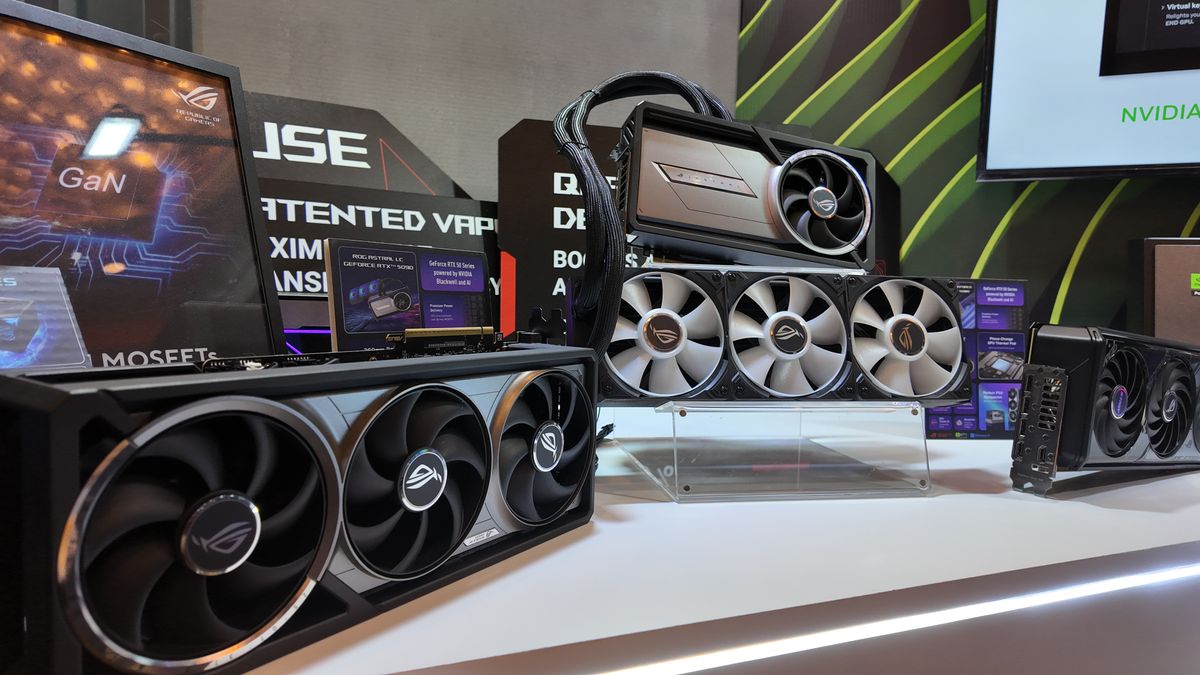AMD has announced a trio of next-gen Ryzen Z-series APUs intended for use in gaming handhelds at their CES 2025 keynote. As we reported in December, the family includes three different architectures stretching back to 2022, but the release still includes some interesting new information about where these chips might end up.
The flagship Z2 Extreme is an eight-core, 16-thread design with a TDP of up to 35W, built on the Strix Point architecture - which recently impressed us in the Beelink SER9 mini PC. The APU also includes 16 RDNA 3.5 CUs. Of the eight CPU cores, three are full-fat Zen 5 cores and five are smaller Zen 5C cores with less on-board cache but otherwise the same microarchitecture. This hetrogeneous design is intended to provide a better mix of single-core speed and die area / power usage versus a homogeneous alternative, so it'll be fascinating to see how it performs in new high-end gaming handhelds - think a next-gen Asus ROG Ally X or Lenovo Legion Go, for example.
1 of 3
Caption
Attribution
The next spot down is the vanilla Z2, which is also eight cores and 16 threads but using the Hawk Point architecture - so these are Zen 4 cores. The APU also includes 12 RDNA 3 CUs. It's rated up to 30W, and should be found in more affordable handhelds - eg the cheapest variant of the ROG Ally.
Finally and perhaps most interestingly, the Z2 Go is a Lenovo exclusive design reportedly intended for the leaked Legion Go S, their smaller and cheaper handheld. This is a four-core Zen 3+ (Rembrandt) design with 12 RDNA 2 CUs, with the 2022-era architecture promising less performance and fewer features at a lower price. That could be a good fit for the Go S, which ought to be aggressively priced versus the titanic original Legion Go - and presumably a $300-$400 handheld would do well if performance was in Steam Deck territory!
Pre-embargo reporting suggested that AMD's announcement promised that Z2-series chips would be available on systems made by the likes of Valve, Asus and Lenovo, hinting towards a mid-gen refresh for the Steam Deck, but there doesn't appear to be any solid footing for that claim in the slides. Instead, devices by these manufacturers seem to be name-checked only in terms of the category's explosive growth.
In fact, Valve employee Pierre-Loup Griffais, whose Bluesky profile lists him as working as a programmer on the Steam Deck, categorically denies the proposition, saying "There is and will be no Z2 Steam Deck."
We may still see SteamOS support for the new chips for the benefit of other companies working on third-party SteamOS devices, of course.
I expect we'll hear more about these new devices as CES continues to unfold, so stay tuned for all the latest announcements - including what are expected to be relatively meaty releases from the likes of Intel and Nvidia.

 1 day ago
3
1 day ago
3









 English (US) ·
English (US) ·